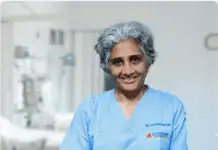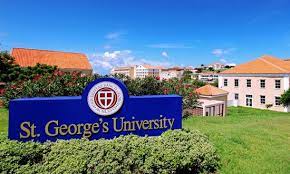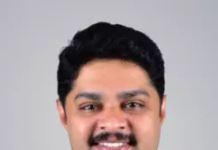A higher education in medicine is bound to have a few surprises here and there, regardless of the time one has spent studying and preparing to be a medical student. A Doctor of Medicine (MD) program is very different from any other professional degree.
To give you a better idea of what to anticipate when you start medical school, a few graduates from St. George’s University, Grenada, West Indies, in the Caribbean, share what they wish they’d known before they started.
1. Give importance to time and schedule management
Many students can get away with cramming for large exams or skimming through weekly reading assignments during school or college. Such short cuts will not work as a medical student. As an aspiring healthcare professional, you must acquire a large quantity of information in a short period of time, so good study habits and task prioritisation are crucial.
2. Do not compare your study methods with your peers
It is not uncommon to feel slightly lost at the start of medical school. As a result, it can be natural to look around and compare yourself to your peers, but this impulse can be counterproductive to your medical school performance.
It’s critical to remember that your classmates aren’t your competitors, and what works for one student might not work for another. The goal is to find which learning tactics work best for you.
3. Have a wider perspective
While medicine is a scientific discipline, it’s also quite nuanced.
As a practitioner, you must learn to look at the big picture to accurately identify medical concerns and prescribe the right course of treatment. The sooner you accept that concept, the better off you will be in medical school and beyond.
4. Take time out for self-care
It is imperative for medical students to take some personal time out during a day of studying. Building up this habit right from the start will ensure that students, and eventually professionals, do not face burnout, even as a professional medical practitioner.
5. Asking for help isn’t a sign of weakness
Medicine is one of the most demanding educational programmes offered. Many students find themselves challenged academically like never before. During such situations, it is the advice of successful doctors to seek help. Medical schools fully expect students to seek advice, and most of them have support groups and centres that will assist the students during their difficult times. For example, the Department of Educational Services at St. George’s University is used by nearly 100 percent of students to obtain help with a variety of things such as, note-taking, time management, exam preparation and with other academic and non-academic support.
6. Not all medical schools will yield the same outcomes
One of the first steps in the medical school admission process is evaluating the different potential medical schools. During this process, it is important to keep in mind that the way schools train their students will be different from one another. Syllabus, faculty, extracurriculars, and teaching methods are just some of the factors that one can see differences in.
This is where contact with alumni comes in handy. Alumni groups and associations will be able to give a detailed overview of experiences specific to that school. This is a sure-fire way of selecting a school that suits you best.
About St. George’s University School of Medicine:
Founded in 1976 with the goal of drawing the best talent and practices from around the world, St. George’s University (SGU) has become a centre for academic excellence worldwide. With students and faculty drawn from more than 150 countries, SGU is truly an international institution, with a global perspective, poised to help educate students in this rapidly changing world.
St. George’s University School of Medicine has a four-year Doctor of Medicine degree program or offers five-, six-, and seven-year Medical Degree Pathways with entry points available for students from any education system around the world. SGU has a large network of 75+ affiliated hospitals and health centres in the US and UK and also has a unique opportunity for students to begin their medical career in Grenada, the United Kingdom, or India.
Visit EasyShiksha for skill development courses.


































































